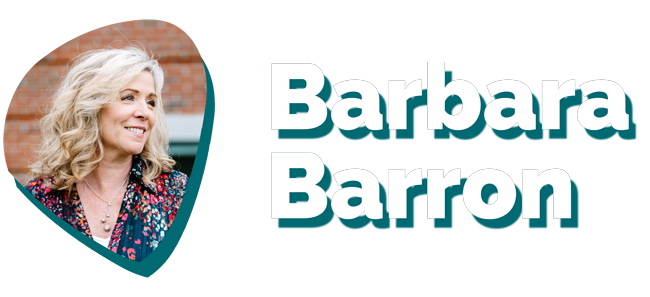March 10th, 2021 by Barbara Barron
Please note that this article is intended for the eyes and ears of the Heads of School and Executive Directors out there. Read on, dear development pro. But then forward this on to your leader, with my best wishes.
There she is, toiling away in her tiny office. Can you see her, in your mind’s eye? She’s deftly handling all aspects of the organization’s fundraising activities. She’s launching appeals, entering data, recording gifts, pumping out acknowledgment letters, planning events, and fielding requests from a volunteer. Someday soon, we hope, she’ll be driving her own car to Target to pick up cases of sparkling water and boxes of brownie bites for the next parent gathering. And my favorite: making name tags. So glamorous.
Who is this one-woman-band of a person? Why, she’s the solo development department – of course! And while she definitely deserves our gratitude and applause, what she really needs is our respect… and some help.

Independent schools all over this country rely on the work of solo practitioners – development offices of one. With tight budgets and eagle eyes scanning for unnecessary expenses, we understand why it happens.
But if we take a deeper look, we might come to a different conclusion. We may even move towards a completely different model. One that supports these fine professionals by giving them the resources and support they need to continue to survive. And by survive, I – of course – mean thrive.
After all, for schools and many other non-profits, gifts are the only source of non-tuition (or non-service) generated revenue we have. It is what we count on every year to make the magic happen in our program. For those fortunate organizations that have amassed a significant endowment, or have sizable physical plants that garner big ancillary income (say, summer camp programs or special event rentals), the pressure on gifts is less intense. Somewhat. I’ve never seen or heard of a school so well endowed (if you will) that they don’t also go full-court press on raising annual dollars.
For the one-woman shop, that work is all hers. Most of us who get into this line of work do it for the opportunity to have an impact. We want to help. To serve. There are notable exceptions, sure, but most of us are not out for fame or to always be the center of attention. So, while many of us are ok sacrificing fancy office digs for the good of the program and the support of our teacher colleagues, there comes a point of no return that I see too often.
Great advancement professionals are burning out. They are tasked with too much, without adequate compensation, recognition, or support. They are lonely and underappreciated. It’s a bad look. And our schools are hurting because of it.
How this is operationalized and the ways we can fix it are two sides of the same coin.
The fix regards communication. In other words: who has what information about the current roster of families at our school. There is a natural and healthy tension about who needs to know things. Discipline issues, for example. An illness in a family. A student struggling academically or emotionally. Every situation is, of course, unique. But in too many schools, there is a virtual wall that prevents the advancement professionals from being in the know about these sensitive situations.
What’s the harm? Well, let’s say that our beleaguered one-woman development professional happens to call on the family in distress on that very day. Maybe she’s calling to ask for a donation for the annual auction. Or to remind them, as they requested, of their next pledge payment. Bam. Blindsided. And in addition to our pro feeling absolutely terrible for the insensitivity, this makes the school look heartless, disorganized, and out of touch. I’ve been in that situation and it is awful. So much for building and caring for relationships.
This is totally avoidable, my friends. Sharing confidential information is imperative. It needs a thoughtful procedure, for sure. But it’s not like development folks don’t handle and keep all kinds of highly confidential information every day. It’s what we know how to do. Instead of being left out, we need to be trusted by our colleagues. And we need our Heads to create and insist on a process that loops us in.
Similarly, it’s vital to share information about newly admitted families early on in the process. This gives the one-woman development team a chance to learn more about them and to prepare for the eventual hand-off of these families to the ongoing relationship manager. Oftentimes our admission colleagues – again adhering to confidentiality and healthy boundaries – are reluctant to share intelligence, making it much more arduous for development to do the necessary and standard work of research.
As forward-looking organizations, we need to break down those silos and start seeing this work as the collaboration it should be: welcoming new members of the community and cultivating what we hope will be our next generation of donor change-makers.
Naturally, much of this important refashioning of systems requires our Heads (and Boards) to see the issue and the consequences of continuing to isolate and minimize development. Especially when it is a one-person operation.
To make that process clearer and easier, here are some additional, specific ways to start to make vital changes. Changes that will help us keep good people longer. Changes that will build a more effective advancement model that benefits everyone:
1. Give your one-woman development team access to family information in real-time, from all key players. Make sure your development pro is in the room and at the table — for all the reasons stated above.
2. Create communication systems that respect privacy but also ensure there are no gaps in your one-woman team’s knowledge so you minimize the risk of painful gaffs. This is a clarification and expansion of item number one. It’s not enough to dump a spreadsheet on her. Your information-sharing system needs to be both thoughtful and consistent.
3. Train new Board members to follow the one-woman development team’s lead in matters of cultivation, solicitation, and stewardship. Insist that trustees and other volunteers report back on all donor interactions in a timely manner so that our one-woman development team can do her job. Keeping track of and serving as air traffic control is a major part of the job description. This will make it doable without the elevated risk of burnout.
4. Offer ongoing professional development opportunities to your one-woman development team. Send her to conferences. Provide professional coaching. Encourage her to engage with peers at other organizations to share best practices and learn new techniques. If she is going to be at the center of your fundraising world, arm her with the most relevant and up-to-date information we have.
5. Find the resources to pay your one-woman development team what she’s worth. Maybe find a way to add another team member (!) so she can occasionally get out front behind a screen and meet and make connections with families, or call on alumni, or sit with donors to learn more about their interests and passions. Give her the breathing room to help the school deliver on its inspiring mission.
And finally:
6. Give your one-woman development team her own office, and put that office in a highly-visible area. This is a far more central issue than simply where someone sits to do their work. Too often, development offices are squirreled away, literally in a basement or another off the beaten path part of campus. It is highly counterproductive to hide our development office. Why? Because what it says to our community (parents, teachers, other administration, students – also known as future alumni) is that the office and the work being done in it is unimportant – at best – and distasteful or shameful – at worst. That is the opposite message we should be broadcasting. Instead, we should be loud and proud about the evidence of philanthropy at work in and for our organizations. We should celebrate generosity. And we should demonstrate that we are grateful for the hard and noble work of the professionals that make it happen.
These are the kinds of simple but substantive changes that will grow our programs, whether they be one person shops or ten-person offices.
This global crisis has shaken up our schools in so many ways. These solutions are doable and can change your whole world in a matter of weeks. There’s never a better time than now to invest in your advancement program and grow the vital resources we need to deliver on the mission.
As always, stay well,
Barbara Barron

[email protected] // @BBAdvancement







